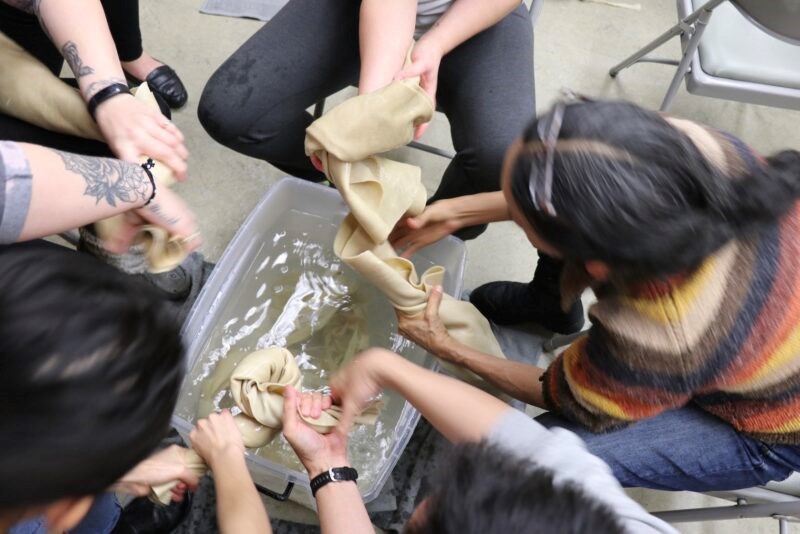A new exhibit called “Lheidli: Where The Two Rivers Meet” is opening at Two Rivers Gallery.
The exhibit showcases a three-year project designed to address racism in healthcare by shifting how health professionals view Indigenous health and support Indigenous access to equitable care.
The exhibit is also accompanied by a publication detailing the work called “Lheidli, Where Two Rivers Meet, Decolonizing Cultural Safety Education Through Cultural Connections”
The program brought together healthcare workers and Indigenous community members from around the Prince George area in a culturally safe, structured environment to share insights as a group.
“Through our collaboration over the past three years, we have developed, tested, and refined a cultural safety education workshop model, referred to as Cultural Connections,” the team behind the program writes.
“A key aspect of the workshop model is the prioritization of local Indigenous protocols and inclusion of local Indigenous artists, knowledge holders, and cultural advisors as workshop facilitators, supported by designers, design researchers, and a physician.”
During a series of workshops, participants directly addressed the connection between Canada’s colonial past and present, and the health inequities we see today.
The 2020 In Plain Sight: Addressing Indigenous-specific Racism and Discrimination in B.C. Health Care Data report, produced by the BC Ministry of Health, documents ongoing, widespread “Indigenous-specific stereotyping, racism and discrimination” in healthcare.
Statistics bear out the personal cost of this discrimination, revealing Indigenous mortality rates far in excess of the general population.
Cultural Connections aims to change this through exploring a new model for healthcare education.
Marlene Erickson, an Elder of the Nak’azdli Whut’en Nation and a member of the Lusilyoo (Frog) Clan, is Executive Director of Aboriginal Education at the College of New Caledonia. She notes how the Cultural Safety model provides “foundational” lessons for transforming healthcare.
“Lots of people don’t go to doctors until they’re in a great deal of pain, and often in end-stage illness because they are ashamed,” Marlene writes.
“Add to this the lack of understanding on the part of the healthcare professional, and you have the tragic health outcomes we see too often today. Through making, sharing and discussion we create understanding.”
This understanding is a part of cultural competency, Marlene continues. It is also a key tool for revealing the humanity behind the statistics, and for creating meaningful change in Indigenous healthcare.
“Cultural competency — which the elders call gentle hands — is a critical component of improving the health outcomes of Indigenous people; probably as important as the medical knowledge that students learn. We hope workshops like this one will instill those skills so participants will carry them into their professional practice and beyond.”
Lheidli: Where The Two Rivers Meet is a collaboration between the Aboriginal Gathering Place and the Health Design Lab at Emily Carr University of Art + Design (ECUAD) and the Executive Director of Aboriginal Education at the College of New Caledonia (CNC), and funded through a Systems Change Grant from the Vancouver Foundation.
An opening reception and launch event for Lheidli will be held at Two Rivers Gallery’s Rustad Galleria in Prince George, BC, from 5 to 8 p.m. on Aug. 11.
You can also read the full text of the Lheildi publication online.



